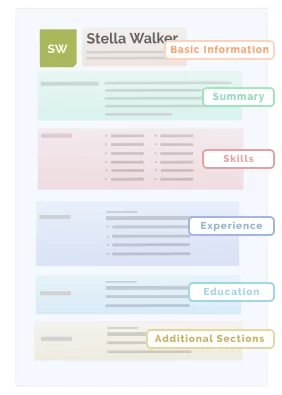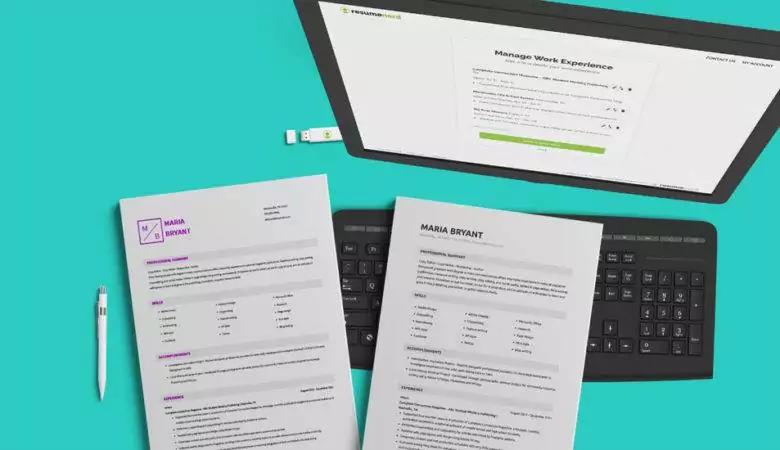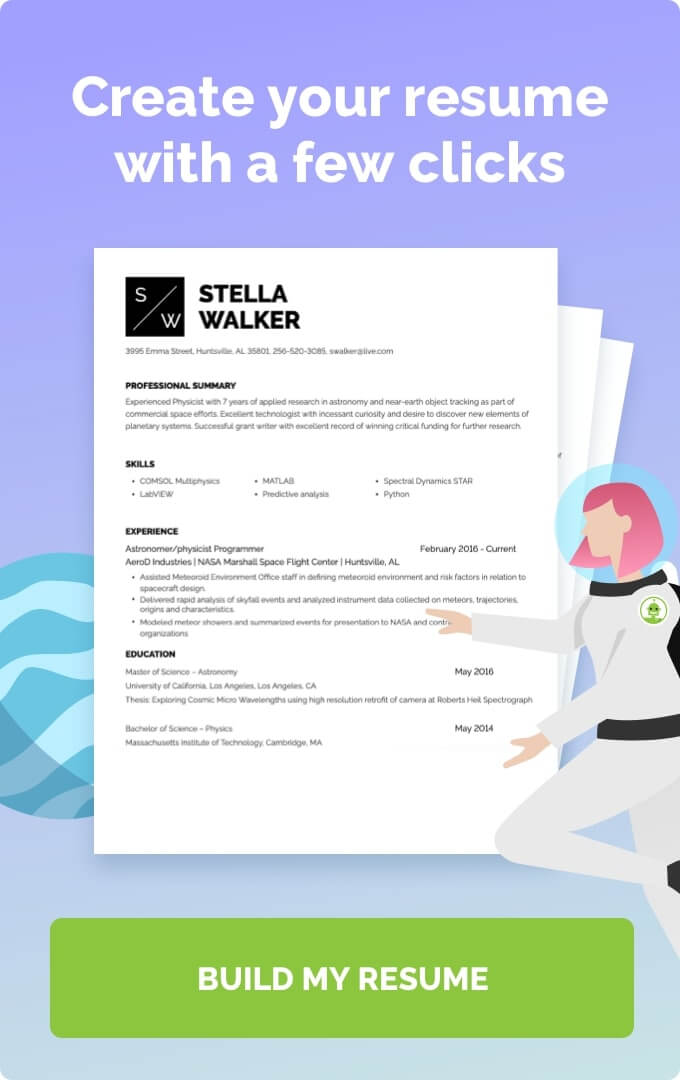Applying to jobs with a functional resume can seem like an uphill battle.
Truthfully, it kind of is — this skill-heavy functional resume format generally isn’t considered the norm among hiring professionals.
But victory is possible. It’s all about intelligent formatting.
Table of Contents
 Introduction
Introduction
A functional resume isn’t considered as traditional — or, in most cases, as desirable — as the chronological resume format. However, in certain instances, such as a career shift or if you have limited work experience, it may be the best choice.
Since you may be competing against candidates who do have the upper hand in terms of work experience, it’s vital to really make your functional resume shine. You’ve got to be meticulous about your approach, wording, and organization.
Ready to make your functional resume stand out? Here are some easy adjustments that can help you demonstrate that you’re the best fit for the job!
 What Is a Functional Resume Format?
What Is a Functional Resume Format?
 Also referred to as a skill-based resume, the functional resume format focuses primarily on the skills you’ve developed over the years that make you a qualified candidate for a given job.
Also referred to as a skill-based resume, the functional resume format focuses primarily on the skills you’ve developed over the years that make you a qualified candidate for a given job.
Physically, the functional resume will mostly look like a chronological resume, but with one major difference. Skills will take up the bulk of the document’s real estate, and experience will be listed below — if present at all.
Who Should Use the Functional Resume Format?
The functional resume should only be used if absolutely necessary, advises Debra Boggs. “Functional resumes can be tricky because hiring managers and recruiters don’t often like experience listed that way,” says Boggs, co-founder of executive coaching firm D&S Professional Coaching. “They are not the right choice for everyone.”
There are some cases where the functional resume format is the best decision, however: “for someone either switching careers or switching back to a job function they held many years ago, it can be the best way to bring the most relevant experience and skills to the top,” says Boggs, “rather than starting the resume with the most recent, but irrelevant, experience.”
 How to Improve Your Functional Resume
How to Improve Your Functional Resume
If you’ve deemed that the functional resume is the best choice for you, how can you make yours stand out? Here are some key tips to improve your functional resume so that employers can really see what you’re made of:
 Pay Attention to Detail
Pay Attention to Detail
To make a functional resume work for you, apply basic common sense and care. “Proofread your resume! Make sure there are no spelling/grammatical errors!” says Allison Cougan, Senior Technical Recruiter at Iterable. “Have someone else check it for readability!”
Organize Skills By Theme
Since skills are front and center on the functional resume format, you want to be sure to display them in an easy-to-navigate and appealing way. One simple trick you can use to make your resume look good and make it easy on the eyes for hiring professionals? Organize your skills by theme.
 According to Boggs, “it’s always a good idea to break up large blocks of text or long lists of bullets to make it easier for your audience to read through quickly.”
According to Boggs, “it’s always a good idea to break up large blocks of text or long lists of bullets to make it easier for your audience to read through quickly.”
Consider organizing your skills in a hierarchy based on what skills are most desirable for the job you’re applying for. For example, if you’re applying for a marketing job, you might want to give categories like “Computer Skills” and “Communication Skills” top billing.
Focus on In-Demand Skills
Speaking of skills… they’re not all created equal. You want to focus on skills that are specifically called for in the job listing, as well as skills that are universally in demand.
Start by looking at the job listing for specific keywords or skills requested. “Try to align the wording on your resume with keywords or skills called out in a job description that you’re applying to,” Cougan suggests.
Next, consider the types of skills that are generally viewed as being in-demand, such as communication and tech skills — but be aware of more timely needs, too. Cougan continues, “Now that we’re all working remotely, the ability to communicate and articulate your ideas concisely has become even more important than before. “
Carefully Craft Your Professional Summary
It can be tempting to gloss over the professional summary on a functional resume. After all, the whole reason for choosing this format is that you don’t have a ton of experience in the field, right?
Don’t underestimate the power of this small paragraph at the top of your resume. It might be the first thing a hiring professional sees, so make it count! Use this small portion of text at the beginning of your resume as a mini soapbox — get up there and talk up the mad skills you’ve amassed that make you a serious contender for this position!
Write a Killer Cover Letter
 Should you make note of your non-traditional resume format in your cover letter?
Should you make note of your non-traditional resume format in your cover letter?
“Job seekers should keep in mind that not all cover letters are read by the hiring managers or recruiters,” says Boggs, “so it’s not a good idea to rely on them to convey important information not listed in your resume.”
That being said, there is value to giving it a mention in case they do actually read it. “However, it’s a good opportunity to explain why you’re making a career move and what makes you qualified and ready to take on a role in a new area,” Boggs explains. “A cover letter gives you the opportunity to be more conversational and add more context to your resume.”
Emphasize Experience
The functional resume is mostly about skills, but in general, if you have some experience, do list it. Boggs notes, “it’s still important to list work experience with dates up to 15 years ago because employers and recruiters are still going to want to know those details. A functional resume just allows you to steer their attention toward the skills you want to highlight first.”
Boggs suggests adding a “career history” section at the bottom of your functional resume, including company names, titles, and dates.
 It’s All About Form and Function…
It’s All About Form and Function…
If you want to make your functional resume stand out, it’s all about intelligent formatting and attention to detail.
Remember: you’re already working with a less traditional resume format. It’s important that you do all you can to demonstrate your professionalism, responsibility, and … yes, skills! A professionally constructed resume, regardless of format, will always help you get noticed.








